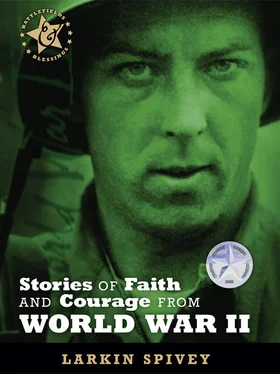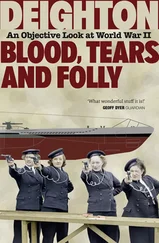Thanatopsis
William Cullen Bryant published “Thanatopsis” in 1817 when he was a twenty-three-year-old lawyer. Thanatos is the Greek word for death, and the poem is a meditation on the subject. As he faced his own certain death, Billy Farrow wrote to his mother: “Read ‘Thanatopsis’… if you want to know how I am taking this.” 60The following is the most well-known excerpt:
As the long train
Of ages glides away, the sons of men
The youth in life’s fresh spring, and he who goes
In the full strength of years, matron and maid,
The speechless babe, and the gray-headed man
Shall one by one be gathered to thy side,
By those, who in their turn, shall follow them.
So live, that when thy summons comes to join
The innumerable caravan, which moves
To that mysterious realm, where each shall take
His chamber in the silent halls of death,
Thou go not, like the quarry-slave at night,
Scourged to his dungeon, but sustained and soothed
By an unfaltering trust, approach thy grave
Like one who wraps the drapery of his couch
About him, and lies down to pleasant dreams.
Under the tutelage of my high school English teacher, I studied this poem and memorized large portions of it when I was fifteen. I should not have been surprised to learn that a young airman in World War II found comfort in its thought-provoking lines. Bryant, unfortunately, didn’t elaborate on where his “unfaltering trust” lay. However, Billy Farrow did elaborate by clearly stating that, “My faith in God is complete.” 61With a secure faith in the right place he was able to face the worst possible fate with tranquility, bearing witness to the power of his own unfaltering trust.
O Lord, see how my enemies persecute me! Have mercy and lift me up from the gates of death, that I may declare your praises.
—Psalm 9:13–14
February 13
Prisoner of War
Jake DeShazer was the bombardier on the last of Doolittle’s B-25’s to launch from the Hornet . His aircraft crashed in China where he and others of his crew were captured by the Japanese. He was beaten, half-starved, and subjected to solitary confinement. Three of his buddies were executed by firing squad. He said that at that time, “The bitterness of my heart against my captors seemed more than I could bear.” 62He eventually was taken to Tokyo where he remained imprisoned throughout the war.
In May 1944 he was given a copy of the Bible, which he began to read feverishly for the first time. The more he read, the more he became convinced that what he was reading was true and relevant to him. He said, “On 8 June 1944, the words in Romans 10:9 stood out boldly before my eyes: ‘If thou shalt confess with thy mouth the Lord Jesus, and shalt believe in thine heart that God hath raised Him from the dead, thou shalt be saved.’ In that very moment God gave me grace to confess my sins to Him, and He forgave me all my sins and saved me for Jesus’ sake.” 63
This amazing story is a witness to the power of Scripture to change lives. God’s Word alone penetrated this man’s miserable circumstances to convict him of the true way to salvation. By reading and hearing the Word, he was able to take this step of faith and become a new man. Even though still in prison, his heart changed toward his captors. His bitter hatred became “loving pity” when he realized that the people who were so cruel to him had not even heard of Jesus Christ.
If we confess our sins, he is faithful and just and will forgive us our sins and purify us from all unrighteousness.
—1 John 1:9
After giving his life to Christ, Jake DeShazer’s physical circumstances as a prisoner of war did not change. In fact, sickness brought him close to death, and his suffering grew worse. Spiritually, however, he began to grow stronger. His attitude toward his captors changed in a profound way:
I realized that these Japanese did not know anything about my Saviour and that if Christ is not in your heart, it is natural to be cruel. I read in my Bible that while those who crucified Jesus on the cross had beaten Him and spit upon Him before He was nailed to the cross, He tenderly prayed in His moment of excruciating suffering, “Father, forgive them for they know not what they do.” And now from the depths of my heart, I too prayed for God to forgive my torturers, and I determined by the aid of Christ to do my best to acquaint the Japanese people with the message of salvation that they might become as other believing Christians. 64
Freedom came at last to Jake DeShazer on August 20, 1945, when American troops parachuted into his compound to ensure that he and the other prisoners were protected. After returning to the States and recovering his strength, he heard God’s call to take Christ’s message to the Japanese people. He attended a Christian college and returned to Japan a missionary, starting churches throughout the country. Of the many that he influenced, one of the most notable was Mitsuo Fuchida, the lead pilot in the attack on Pearl Harbor and the subject of another story. Jake DeShazer’s life became a testament to the fact that his heart was truly changed by Christ’s message. Love, as defined in 1 Corinthians, became the foundation of his work and his relationships.
Love is patient, love is kind. It does not envy, it does not boast, it is not proud. It is not rude, it is not self-seeking, it is not easily angered, it keeps no record of wrongs. Love does not delight in evil but rejoices with the truth. It always protects, always trusts, always hopes, always perseveres.
—1 Corinthians 13:4–7
Early on December 7, 1941, Cdr. Mitsuo Fuchida looked down on the ships of the U.S. fleet peacefully moored at their Pearl Harbor berths. As air group commander and leader of the first attack wave he wanted to make sure that the battleships were there. They were neatly lined up alongside Ford Island as expected. Excitedly he shouted over his radio the codeword to attack, “Tora! Tora! Tora!” and then led the Japanese aircraft to their target. He later described this moment as “the most thrilling exploit of my career.”
Fuchida was severely injured at the battle of Midway in 1942 and served for the remainder of the war as a high-level staff officer. As the end of the war neared he did not want to surrender, but favored fighting to the last man. He did as the emperor directed, however, and left the service a bitter and disillusioned man.
After the war Fuchida became a farmer so that he could feed his family. Living a life of isolation and poverty, he went through an intense period of introspection and questioning. Before, he had not been a religious man. Now he began to see God in his surroundings and in the working of the seasons. He said, “There on my farm, God began to come into my heart… I began to realize slowly that all things were dependent upon a divine Creator, and that I was living under the grace of God. I could sow the seeds; I could plant the saplings; I could draw water with my hands. But they all came from the benevolence of a kind and far-seeing Creator.” 65Mitsuo Fuchida’s long spiritual journey began with a sense of wonder about the natural beauty of the world around him.
Ascribe to the Lord the glory due his name; worship the Lord in the splendor of his holiness.
—Psalm 29:2
The war crimes trials after the war were a source of bitterness and frustration for Mitsuo Fuchida. Although he himself was not accused, he could not understand the moral basis for the victors putting the defeated on trial. The Japanese military code allowed for no mercy toward a fallen foe and abhorred the idea of any form of surrender. He was convinced that atrocities toward prisoners must have been committed on both sides. He eagerly sought out returning Japanese prisoners to confirm his feelings.
Читать дальше












